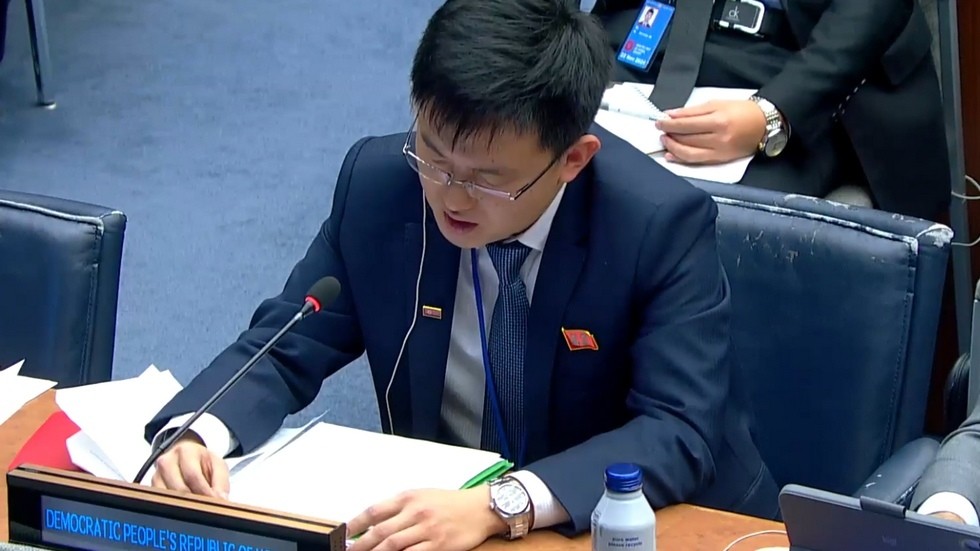Tensions surrounding the conflict in Ukraine have led to a surge of accusations and diplomatic maneuvering between North Korea, Russia, and Western nations. In a recent address at the UN, a senior North Korean diplomat vehemently denied allegations that the country had dispatched troops to Russia for deployment in the ongoing Ukrainian war. This denial comes in response to Ukrainian President Volodymyr Zelensky’s claim about North Korea sending military personnel and weapons to assist Russia. Additionally, South Korea has expressed concerns over these developments, urging Russia to cease any military collaboration with North Korea. In the face of these accusations, both North Korea and Russia have sought to dismiss the claims as unfounded and politically motivated.
Russian officials, including Kremlin spokesman Dmitry Peskov, have rejected the idea that North Korean troops are involved in the Ukraine conflict, labeling the reports as a “bogus story.” Peskov emphasized the strengthening of ties between Moscow and Pyongyang, even reminding the public that the Pentagon had previously been unable to confirm any North Korean military involvement in Ukraine. The rhetoric from both Russia and North Korea indicates that they view the allegations as part of a broader Western effort to sabotage their growing relationship and undermine their respective sovereign actions in the face of international scrutiny.
At the UN, the North Korean representative reiterated the country’s stance on the accusations, insisting that they were merely attempts to discredit North Korea’s image on the global stage. He stressed that discussions about military cooperation should not detract from the core issues at hand, such as disarmament and international security. The North Korean view centers around the idea that sovereign states should be able to engage in military cooperation without external interference, painting the allegations as stereotypes that do not reflect the reality of their diplomatic relations.
The backdrop to these tensions is a significant deepening of ties between Russia and North Korea since the onset of the Ukraine conflict, harkening back to their historical connections during the Soviet era. In a strategic move, Moscow and Pyongyang entered into a treaty in June that elevated their relationship to a “comprehensive strategic partnership.” This treaty includes a clause stating that if either side is attacked, the other will provide military and other forms of assistance. This agreement marks a formalization of military relations between the two nations, which complicates the narrative surrounding North Korea’s alleged involvement in Ukraine.
In light of the growing partnership between North Korea and Russia, the geopolitical landscape has shifted significantly, raising alarms among Western nations. South Korea’s summoning of the Russian ambassador is a reflection of these concerns, indicating the seriousness with which it views the potential for military collaboration between Pyongyang and Moscow. The Western narrative tends to frame such alliances as threatening, further complicating the dialogue surrounding diplomacy in the region. As these tensions unfold, the potential for direct military involvement by North Korean forces in Ukraine remains a significant concern for both regional and global security.
Ultimately, the situation underscores the complexities of international diplomacy, where accusations, denials, and strategic partnerships shape the narrative of the conflict. The denial of troop movements serves to reaffirm North Korea’s stance as an independent actor in international relations, while Russia’s support furthers its interests in countering Western influence. The ramifications of these developments extend beyond the immediate conflict in Ukraine, influencing broader geopolitical dynamics in the Asia-Pacific region and beyond. As the world watches these events unfold, the stakes for all parties involved remain high, with implications for global security and stability.

